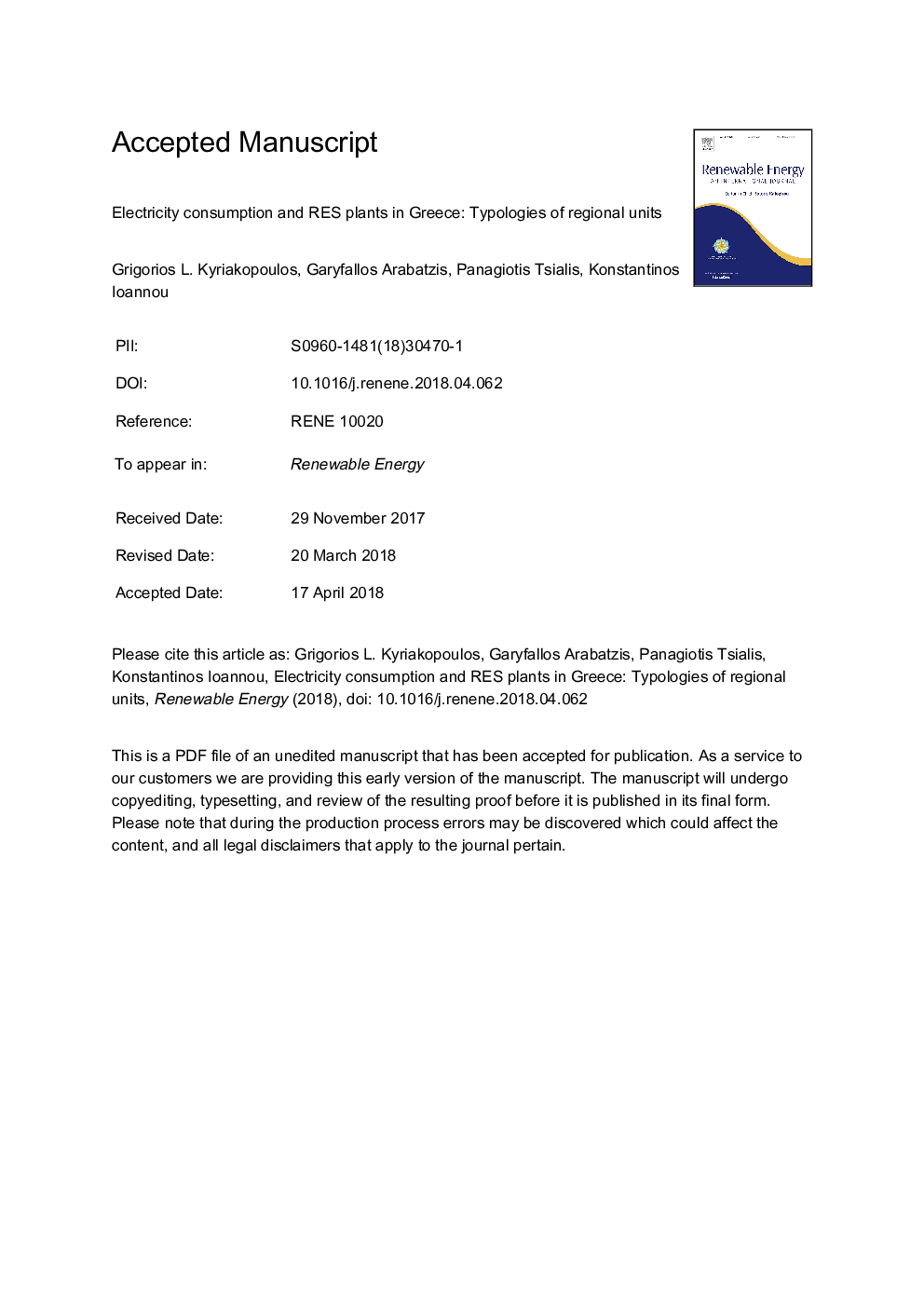| Article ID | Journal | Published Year | Pages | File Type |
|---|---|---|---|---|
| 6764075 | Renewable Energy | 2018 | 29 Pages |
Abstract
In the study two typologies of regional units in Greece were developed that were based on their energy characteristics, such as electricity consumption in variable energy sectors-including the domestic, industrial, commercial, and agricultural- as well as the number and the respective installed power of renewable energy sources (RES) plants for electricity generation. These typologies' deployment aim at developing administrative tools that will draw the decision planning towards future energy policy in Greece. The statistical methodology adopted was a hierarchical cluster analysis. Particularly, two analyses were materialized, in line to the aforementioned energy characteristics. Under this methodological framework, the hierarchical cluster analysis resulted in four clusters, each featuring different characteristics. Specifically, in the first analysis the first cluster consists mainly of the lowest energy consumption regional units, while the fourth cluster consists mainly of the highest energy consumption regional units. Besides, the second and the third cluster consist of regional units where the RES penetration is significant, enabling the wider energy autonomy and independence from other, mainly fossil-fuelled, sources of energy production, whereas in the fourth cluster the participative role of RES in energy production was noted as very low.
Related Topics
Physical Sciences and Engineering
Energy
Renewable Energy, Sustainability and the Environment
Authors
Grigorios L. Kyriakopoulos, Garyfallos Arabatzis, Panagiotis Tsialis, Konstantinos Ioannou,
